The Promise of Independence: Aging in Place with Support
As the senior population grows, many older adults aspire to maintain their independence and remain in the comfort of their own homes. In-home medical support and caregiving services are pivotal in enabling seniors to age safely and with dignity. This article explores in-home care options, programs, and strategies that offer comprehensive support to seniors, helping them manage health conditions, daily activities, and emotional well-being without relocating to care facilities.
Understanding In-Home Care: Supporting Seniors Where They Feel Most Secure
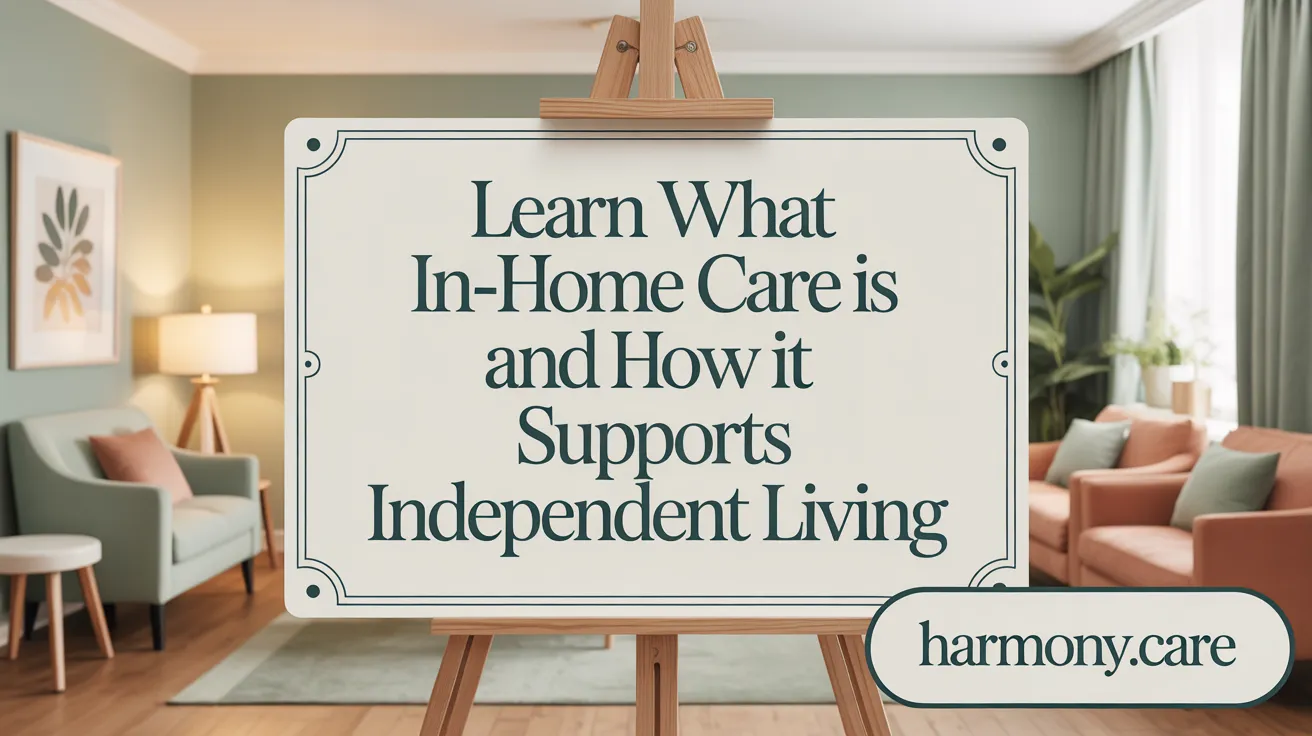
What is the term for helping elderly individuals receive care at home?
Helping elderly individuals receive care at home is commonly called "home care" or "eldercare." This encompasses a broad spectrum of services aimed at supporting seniors in their daily routines.
Home care services can be provided by trained professionals, such as nurses, therapists, and aides, or by trusted family members and volunteers who offer companionship and assistance.
These services include personal care, medication management, wound care, physical therapy, household chores, and transportation for medical appointments.
The primary goal is to help seniors maintain their independence, stay safe, and enjoy a good quality of life while living in their familiar environment.
Types of services offered including medical, personal care, and companionship
Medical services include skilled nursing care, health monitoring, wound treatment, and therapies like physical or speech therapy.
Personal care services involve assistance with bathing, dressing, grooming, and mobility.
Companionship and social support are also crucial, reducing loneliness and providing mental stimulation.
Additional services can involve meal delivery, help with household chores, and transportation.
Some programs, like Meals on Wheels, deliver nutritious meals, while others facilitate transport for errands or healthcare visits.
Goals of in-home care in promoting independence and quality of life
The main aims of in-home care are to support seniors in living as independently as possible.
This includes making homes safer through modifications such as grab bars or ramps and addressing health and mobility needs.
Providing emotional support and social interaction helps improve mental well-being.
In-home care also encourages aging in place—the ability to stay in one’s own home rather than moving to an assisted living or nursing facility.
By tailoring services to individual preferences and health conditions, in-home care promotes dignity, autonomy, and a better overall quality of life.
Terminology: home health care, private caregiving, in-home support
Home health care refers specifically to clinical services provided by licensed health professionals like nurses and therapists, usually covered by Medicare or private insurance.
Private caregiving involves personal or companion care provided by non-professional caregivers, which can be family members or hired aides.
In-home support encompasses non-medical assistance such as household chores, meal prep, and transportation, often coordinated through community programs or government services.
Understanding these terms helps clarify the range of options available to seniors wishing to age at home, ensuring they receive appropriate care that fits their individual needs.
Common In-Home Support Services and How They Enhance Senior Independence
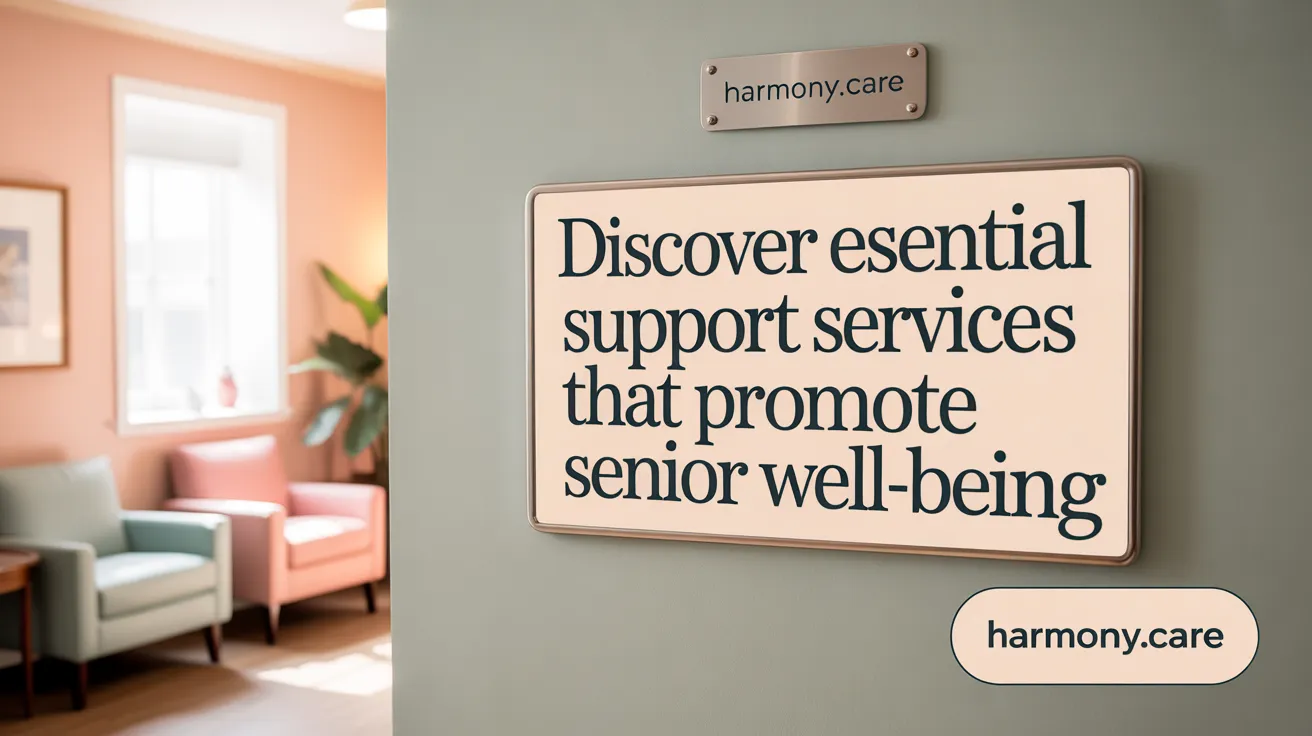
Most commonly requested support services for seniors
The most popular in-home support service preferred by elderly individuals is comprehensive in-home care. This type of support helps seniors with daily activities like bathing, dressing, and meal preparation. By receiving personalized assistance, many older adults can continue living in their own homes longer, preserving their independence and comfort.
Personal care, medication management, meal preparation, transportation
Important in-home services include personal care, where caregivers assist with grooming and mobility. Medication management ensures seniors take their prescriptions properly, reducing health risks. Meal preparation provides nutritious, tailored meals suitable for specific dietary needs, promoting better health. Transportation services also play a crucial role, helping seniors attend medical appointments, grocery shopping, or social outings. These services reduce the risk of isolation and keep seniors connected to their communities.
Role of companionship and emotional support in reducing loneliness
Beyond physical support, companionship and emotional interactions are vital in combating loneliness and improving mental health. Programs such as senior companion services offer social interaction, which greatly enhances emotional well-being. Feeling connected reduces depression and foster a sense of belonging.
Safety measures such as emergency alert systems
Safety at home is a major concern for seniors living alone. Emergency medical alert systems help by immediately notifying emergency personnel in cases of falls or sudden illnesses. These systems usually require a subscription fee but provide peace of mind for seniors and their families.
Rehabilitation and therapy options available at home
Rehabilitation services, including physical, occupational, or speech therapy, are increasingly available in the home. Tailored therapy programs help seniors recover from surgeries or injuries and manage chronic conditions effectively. These at-home services support ongoing health needs while allowing seniors to remain in their familiar environment.
| Service Type | Description | Benefits |
|---|---|---|
| Personal Care | Assistance with daily hygiene and mobility | Supports independence, enhances comfort |
| Medication Management | Ensuring proper medication intake | Reduces health risks, promotes medication adherence |
| Meal Preparation | Cooking nutritious meals tailored to dietary needs | Supports health, prevents malnutrition |
| Transportation | Help attending appointments or errands | Maintains medical and social engagement |
| Emotional Support | Companionship and social interactions | Reduces loneliness, improves mental health |
| Emergency Alert System | Device to call emergency help when needed | Increases safety, peace of mind |
| Therapy Services | In-home physical, occupational, or speech therapy | Facilitates recovery, manages chronic health issues |
These services collectively promote aging in place, allowing seniors to stay safe, healthy, and connected within their own homes. Planning and access to these support options are essential for maintaining quality of life as mobility and health needs evolve.
Programs and Models Facilitating In-Home Care and Aging in Place
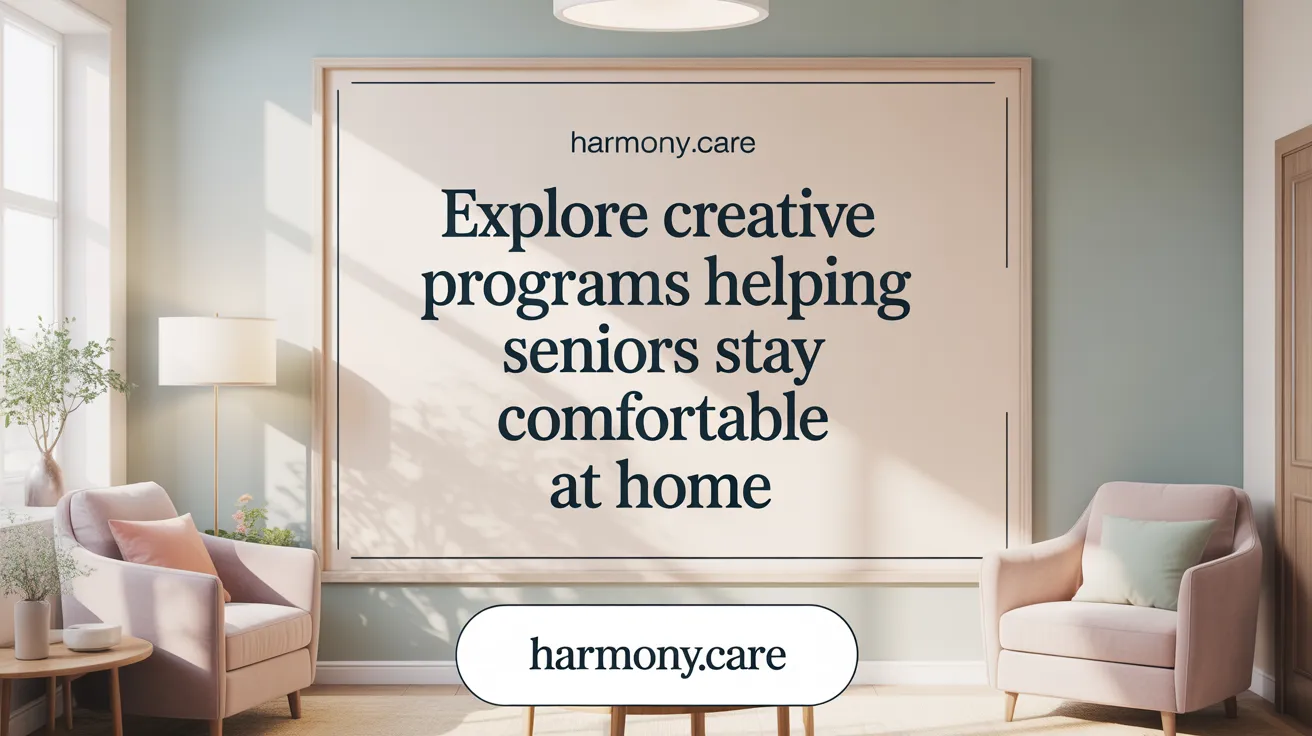
How does the CAPABLE program improve senior independence?
The CAPABLE program is an innovative, interdisciplinary initiative that helps older adults stay safely in their own homes. It combines the expertise of nurses, occupational therapists, and home modification specialists to address both health and environmental safety needs. Participants receive tailored modifications such as installing grab bars or ramps, along with personalized coaching to enhance daily functioning.
By focusing on both personal health and home environment, CAPABLE aims to reduce fall risks and improve overall physical ability. The program’s holistic approach promotes aging in place, enabling seniors to maintain independence longer and enjoy better quality of life.
What is the scope of the IHSS program and how does individual-directed care work?
The In-Home Supportive Services (IHSS) program offers personalized assistance to eligible residents of California who need help with daily activities. It covers services like personal care, household chores, and medication reminders, allowing seniors to live independently.
A unique feature of IHSS is individual-directed care, which means recipients can hire and supervise their own caregivers. They are responsible for hiring, training, and managing these workers, which provides flexibility and personal choice. Eligibility is based on medical needs, living situation, and income, with assessments conducted by a county social worker.
How does the PACE program support frail older adults?
The Program of All-Inclusive Care for the Elderly (PACE) is a comprehensive model that combines health and social services for seniors who are eligible for nursing home care but prefer to remain in their community. PACE provides medical care, therapy, social activities, and assistance with daily living, all coordinated through a team of healthcare professionals.
Participants receive services such as medication management, preventive health screenings, transportation to appointments, and support at home or in day centers. The integrated approach ensures frail seniors get the right level of care while maintaining their independence.
What are the coverage nuances of Medicare and Medicaid for in-home services?
Medicare typically covers certain home health services like skilled nursing, physical therapy, and medical social services, but under strict conditions. Eligibility requires being
Planning and Personalizing In-Home Care: Creating Effective Care Plans
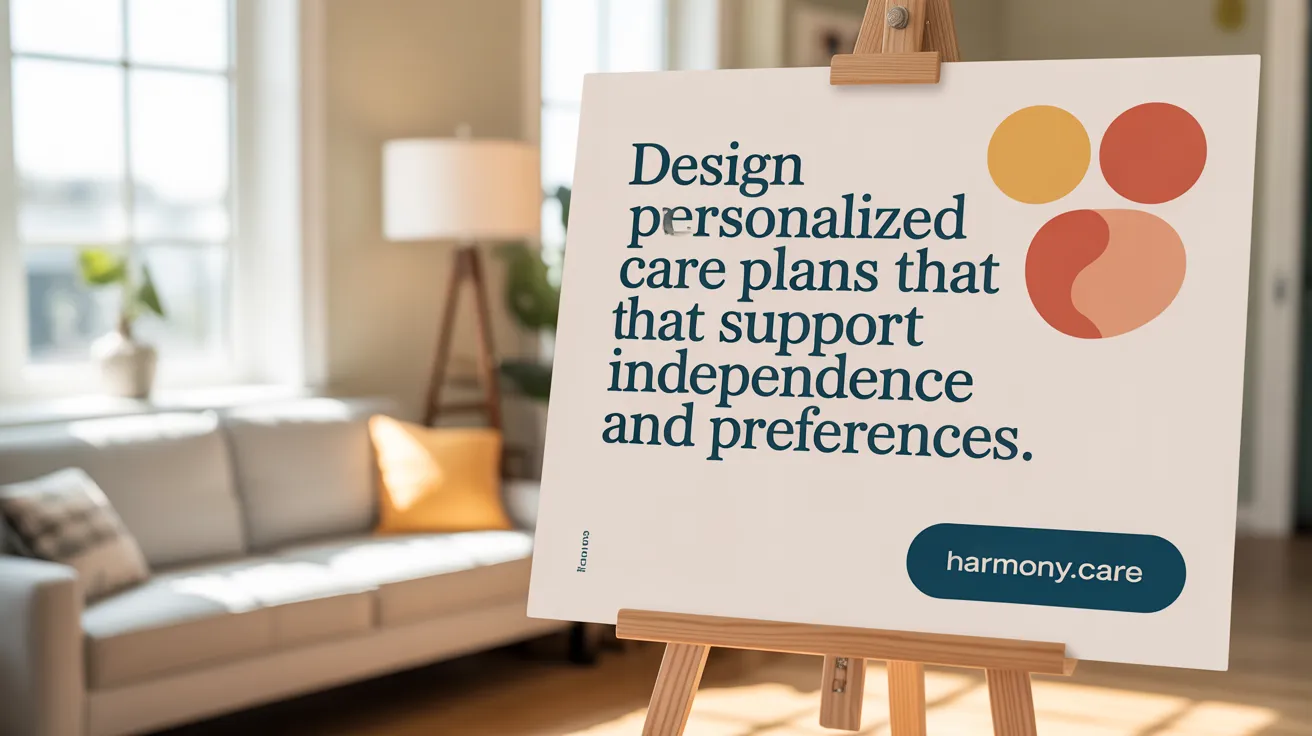
How do you assess an individual's needs, including medical, physical, and emotional aspects?
Assessing a senior’s needs begins with a comprehensive evaluation that covers their medical conditions, physical capabilities, and emotional well-being. Healthcare providers, social workers, or geriatric care managers conduct detailed assessments through home visits and interviews. This process identifies current health issues, mobility limitations, cognitive status, and emotional support requirements.
An accurate assessment helps in designing a care plan tailored to the person's specific needs, ensuring that all health and personal preferences are considered. Reevaluation is also important to adjust care as conditions change over time.
How do you create personalized care plans that respect the senior’s preferences and autonomy?
Personalized care plans focus on individual preferences, routines, and life goals. They involve open discussions with seniors and their families to understand their desires, daily habits, and cultural values. Respecting autonomy means offering choices in daily activities, setting care priorities, and involving the senior in decision-making.
Care plans should include preferred activities, diet, social involvement, and safety considerations, all aimed at maximizing independence and dignity. Regular reviews ensure the plan remains aligned with the senior’s evolving needs.
What are the options for hiring caregivers—professional agencies versus private hires—and what should families consider?
Families can choose between hiring through licensed home care agencies or directly employing private caregivers. Agencies provide trained, insured, and supervised staff, offering peace of mind regarding quality and accountability. They often handle background checks, worker compensation, and training.
Private hiring allows families to have more direct control and potentially lower costs. However, it requires diligent screening, employment compliance, and ongoing supervision.
Choosing the right option depends on budget, comfort level, and the complexity of the senior's needs. Agencies are ideal for those requiring comprehensive services and ease of management.
Why is respectful and open communication with family important in care decisions?
Open communication fosters trust and ensures that all stakeholders, including the senior, are comfortable with the care plan. Respectful discussions help address concerns, clarify expectations, and involve everyone in decision-making.
Effective communication reduces misunderstandings, promotes cooperation, and ensures that the senior’s preferences are honored. It also supports emotional well-being and acceptance of the care process.
How can technological aids, like emergency alert systems, be incorporated into care plans?
Emergency alert systems are vital safety tools that enable seniors living alone to summon help immediately in case of falls or medical emergencies. When creating a care plan, assess the individual’s risk factors and consider installing systems that are easy for them to operate.
These devices should be integrated into daily safety routines and tested regularly. They provide peace of mind for both seniors and family members, ensuring prompt response during emergencies.
What home modifications and assistive devices can improve safety and independence?
Home safety features such as grab bars, ramps, wide doorways, and non-slip flooring are essential for reducing fall risks. Assistive devices like walkers, stairlifts, and personal emergency response systems support mobility and quick access to help.
Incorporating these modifications into a care plan involves assessing current home hazards and making necessary adjustments. Financial aid or grants may be available for these improvements, helping seniors age safely in place.
| Topic | Suggestions | Additional Notes |
|---|---|---|
| Needs assessment | Medical, physical, emotional evaluations | Conducted by healthcare professionals |
| Personalized care planning | Respect preferences, routines, cultural values | Regularly updated to reflect changing needs |
| Caregiver options | Agencies vs private hires | Consider training, oversight, costs |
| Communication | Involvement in decisions, respect | Promotes trust and cooperation |
| Emergency systems | Personal alert devices, medical monitoring | Must be easy to operate, tested regularly |
| Home modifications | Ramps, grab bars, improved lighting | Enhance safety and accessibility |
Creating detailed and flexible care plans that incorporate these elements supports seniors’ independence and well-being, helping them live comfortably and safely at home.
When Staying Home Is No Longer Enough: Alternative Care Options for Seniors
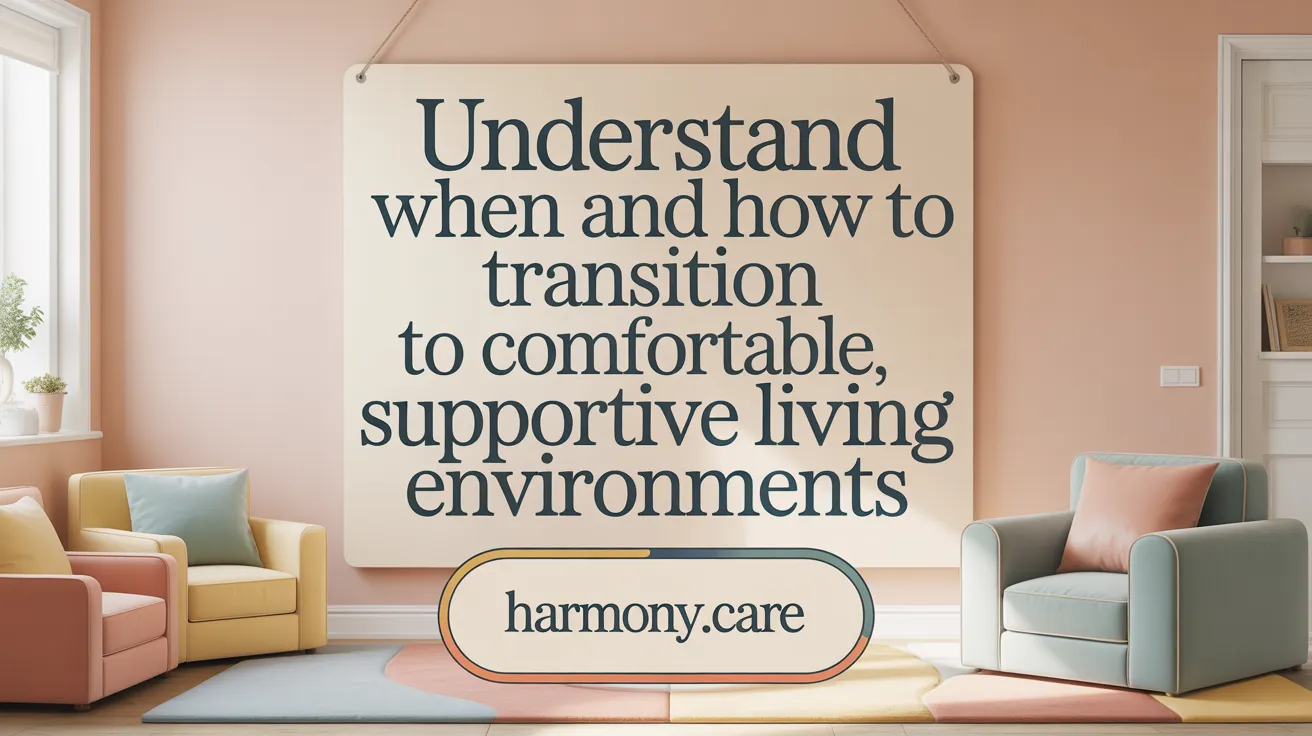
What are the care options available for elderly individuals who can no longer live alone?
As seniors age, their ability to independently manage daily tasks and maintain safety can diminish. Recognizing when staying at home is no longer feasible is essential for ensuring their well-being.
One primary option is in-home care services. These include professional caregivers like personal care aides and home health aides who assist with activities such as bathing, dressing, medication management, and light housekeeping. Medical alert systems further support safety by enabling seniors to summon help rapidly in case of falls or emergencies.
When the risks of living alone outweigh the benefits, more structured environments may be appropriate. Assisted living facilities provide housing combined with personalized support services, offering a balance of independence and supervision. For those with significant medical needs, nursing homes deliver comprehensive medical care around the clock, managed by trained healthcare professionals.
In addition to these options, community resources play a vital role. Meal delivery programs like Meals on Wheels help maintain proper nutrition, while adult day care centers offer social interaction, health monitoring, and personal care during the day.
Supporting a transition from independent living involves regular safety evaluations and ongoing reassessments of the senior’s health and living conditions. This ensures that care plans adapt to changing needs.
Transportation assistance and community-based services also help seniors remain connected to essential services, healthcare appointments, and social activities.
Deciding on the best care was often involves discussions with healthcare providers, family members, and the seniors themselves, combining safety with dignity and independence.
More information can be found by searching for: "care options available when seniors can no longer live independently."
Providing a supportive, adaptive environment is crucial in helping seniors enjoy a safe and comfortable life as they age.
Supporting Senior Independence with Compassion and Care
Maintaining independence at home is a cherished goal for many seniors, and a holistic approach incorporating medical, personal, and community support makes this possible. Through informed care choices, personalized planning, and leveraging available programs and technologies, seniors can enjoy safer and more fulfilling lives in their homes. Families and caregivers play a critical role in facilitating these options with empathy and respect, ensuring that aging in place remains a viable and dignified alternative to institutional care. Investing in comprehensive in-home medical support ultimately improves quality of life and honors the preferences of older adults.
References
- Services for Older Adults Living at Home | National Institute on Aging
- Home Care Services for Seniors: Aging in Place - HelpGuide.org
- Home & Community Services - California Department of Aging
- Aging in Place: Growing Older at Home
- Senior Helpers: Senior Home Care Services - Senior Care at Home
- Services that help an adult remain at home - DSHS
- How Home Care Helps Seniors Stay Independent and Empowered
- Home Care Independence - NC DHHS
- Eskaton Senior In-Home Health Care Services Sacramento
- Staying independent at home - Kaiser Permanente
